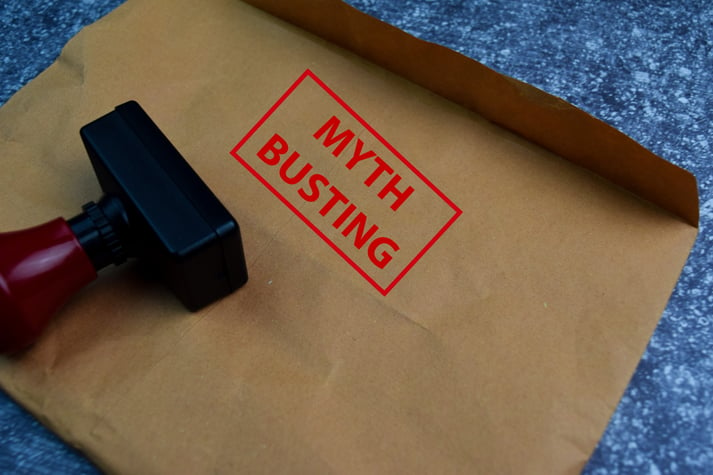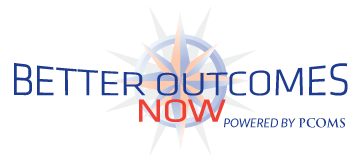January 19, 2023 11:10 AM
The judges of normality are present everywhere.
Michel Foucault

Sigmund Freud once said, “I have found little that is good about human beings. In my experience, most of them are trash.” Surprising commentary from the founding parent of psychotherapy. Unfortunately, the field still finds little that is good about human beings. The only difference is that “trash” has been cataloged into hundreds of specific types in the professional digest of human disasters, the Diagnostic and Statistical Manual of Mental Disorders, Fifth Edition (DSM-5).
Before my diatribe against mental health diagnosis, a couple of qualifiers: criticizing diagnosis in no way diminishes the distress that many endure. Further, my criticism does not mean any disrespect to those who find comfort or help in viewing themselves in diagnostic ways. Rather, the issue here is whether diagnosis is useful for resolving problems and whether it is as scientifically sound as its overwhelming application suggests. Truth is that diagnoses are related more to economic and market factors than science or empirical factors. It is the use of diagnosis as a cash cow that is objectionable, as well as the system that thrives on its exploitation.
The Science of Diagnosis
(See Duncan et al., 2017 for references)
Although rarely questioned, diagnosis isn’t based on much evidence. Scientific and ethical critiques of psychiatric categorization have a long history. A principal theme asserts that the DSM lacks reliability, validity, and clinical utility. The ability of clinicians to agree on a diagnosis for a given client based on independent evaluations (i.e., reliability) has been a target of critics for decades. While authors of the DSM-5 claim that the “DSM is the cornerstone of substantial progress in reliability,” others have pointed out that the DSM-5 field trials’ reliability estimates are based on relaxed norms and have not improved beyond the abysmal rates of earlier DSMs. Critics have also long established that DSM diagnoses contain significant overlap with one another, are often indistinguishable from everyday human behavior, do not identify discreet conditions, and thus fail the crucial test of validity, that is, the ability to represent and delineate conditions that actually exist in the natural world. Highlighting this fact is that not one biological marker has been found to be specific to any DSM-defined syndrome.
Regarding validity and punctuating my point, Allen Frances, lead editor of the fourth edition of the DSM, confessed that “there is no definition of a mental disorder. It’s bullshit. I mean, you just can’t define it.” Without the ability to reliably identify syndromes of established validity, the DSM’s clinical utility falls decidedly flat as a tool for understanding dilemmas or choosing an approach. Selecting a treatment based on diagnosis is moot anyway, given that the preponderance of evidence demonstrates that no one approach is reliably superior to another. Moreover, studies repeatedly demonstrate that diagnoses neither predict outcome nor length of stay. For example, a large study of more than 5,000 clients diagnosed with a full range of “disorders” who received services in a public behavioral health setting found no differential outcome or length of stay by diagnostic category.
Interests of professional guilds and pharmaceutical industries capitalize on the DSM’s presumed objectivity and medical authority. Many have pointed to drug company screening tools and “manufactured diseases” that expand markets for their products. Findings that 61% of DSM-5 Task-Force members report affiliations with drug companies, such as holding stock, contracted as consultants, or serving on company boards justify such concerns.
Therapists, psychiatrists, and frontline medical professionals, armed with diagnostic manuals and screening measures developed by drug companies, selectively listen to information that people present and focus on the very behaviors than will confirm their expectations—all roads lead to Rome, the prescription pad. And the public accepts diagnosis as medical fact. How could they not? Hardly a day goes by without some media outlet pontificating on the sorry state of America's mental health or highlighting a celebrity story of illness. We are constantly bombarded with the fact that we are sick and getting sicker, helplessly falling prey to our own biochemistry or victims of past or current trauma, or more recently, the stress of the pandemic. The key to the problem, we are told, is to identify the suffering and educate people to de-stigmatize seeking therapeutic help.
Drug companies are as much in the business of selling psychiatric diagnoses as psychotropic drugs, since obviously one promotes the other. In doing so, they capitalize on the public’s propensity for believing medical authority. They have done a masterful job of converting the distress of life, be it from relational troubles, financial insecurity, or racial injustice into “treatable” diagnostic categories. How you ask? It’s easy, via the screening scam.
An Act of Power
Despite these longstanding, convincing critiques, psychiatric diagnosis is central to psychotherapy—from initial assessment to treatment planning and supervisory oversight to billing. It remains a fixed part of graduate training, a prominent feature of evidence-based treatments, and a prerequisite for research funding and service reimbursement—all of which engenders an illusion of scientific aura and clinical utility that overreaches its flawed infrastructure. The inseparability of diagnosis and service delivery in most settings, including agencies, schools, community-based services, and hospitals means that millions of individuals have been diagnosed and more are added to the rosters each day. This presents an ongoing dilemma for clinicians, researchers, and academics whose motives stem from the desire to ground their work in the best available science and to be of help to those they serve. To function side by side with the DSM, many clinicians have learned to tell “the little white lie” when entering a diagnostic code. The game is to have it both ways, but in the end, clinicians must capitulate. This routine disingenuousness speaks to a fundamental incompatibility of the DSM system with psychotherapy and is contradictory to the authenticity required for a real therapeutic relationship.
Ultimately, diagnosing is an act of power, one in which a privileged professional dispenses an identity from a preselected list, all of which are negative. By declaring an individual ill, key aspects of that person’s life, including discrimination, poverty, or abuse, become tangential to the label itself.
An Alternative: The Partners for Change Outcome Management System (PCOMS)
A potential solution to the significant drawbacks of psychiatric classification may be found in systematic client feedback. PCOMS, in particular, represents a departure from expert-driven formulations that attempt to classify client distress and problems of living. Instead, clients are empowered to “self-diagnose,” refocusing psychotherapy toward individualized treatment selection and away from manualized options based on diagnosis. In the PCOMS process, client and therapist both engage in a mutual struggle to identify and resolve client-defined concerns. Even though socially defined roles and the nature of the helping relationship grant greater authority to therapists, PCOMS stretches the limits of these constraints by utilizing client feedback at every meeting, particularly attending to client goals and preferred methods.
Routinely requesting, documenting, and responding to client feedback transforms power relations by privileging client beliefs and goals over potentially culturally biased and insensitive practices. Valuing clients as credible sources of their own experiences of progress and relationship allows consumers to teach us how we can be the most effective with them and reverse the hierarchy of expert delivered services. PCOMS provides a ready-made structure for collaboration with consumers and promotes a more egalitarian psychotherapeutic process. It ensures therapy’s match with a client’s preferred future via monitoring progress on the Outcome Rating Scale (ORS). And it provides a way to calibrate therapy to a client’s goals and preferred way of achieving goals via monitoring the alliance with the Session Rating Scale (SRS). Thus, PCOMS promotes the values of social justice by privileging consumer voice over manuals and theories enabling idiosyncratic and culturally responsive practice with diverse clientele,
PCOMS is not only an evidence-based approach; it also has an ethical stance that challenges the potential of diagnostic systems to disempower consumers and overlook cultural diversity. We propose that this system offers a way to reprioritize what matters to psychotherapy outcome and reclaim our empirically validated core values and identity from the stranglehold of psychiatric diagnosis.





.png)


.png)